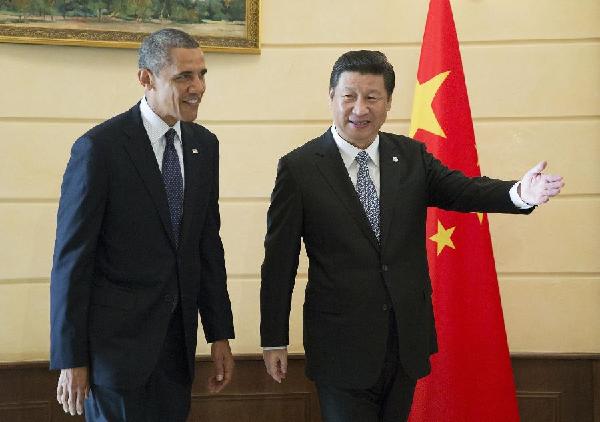US should be a responsible power in the Asia-Pacific region and respect regional peace and the maritime rights of others
Leading a responsible nation requires delicate balancing. US President Barack Obama must manage the time he spends on domestic and international politics, so that he does not neglect thorny national issues, or overlook international situations where the United States desires to play an important role.

Chinese President Xi Jinping (R) meets with US President Barack Obama in St. Petersburg, Russia, Sept 6 2013. [Photo/Xinhua]
When a nation's foreign policy is more assertive than its domestic policy, problems can arise. Back in November 2011, Obama told the Australian parliament that "in the Asia-Pacific in the 21st century, the United States of America is all in." Clearly, he has both overstepped and not followed up. But if Obama were able to balance this so-called "pivot" to Asia with domestic concerns, Asia-Pacific nations would welcome the US as a responsible stakeholder in the region. Unfortunately, these days, this is not the case.
In early October, Obama announced he would not be attending the Asia-Pacific Economic Cooperation meeting, the premier gathering of Asian leaders, held on Oct 7-8 in Indonesia. This is not the first time Obama has failed to attend top gatherings of the region's leaders.
Obama appears overwhelmed by domestic problems. He canceled his Asia trip because of the US government shutdown, which arose from his desire to defend "Obamacare," his controversial healthcare program. Promoting universal medical insurance has been part of his party's platform for over half a century.